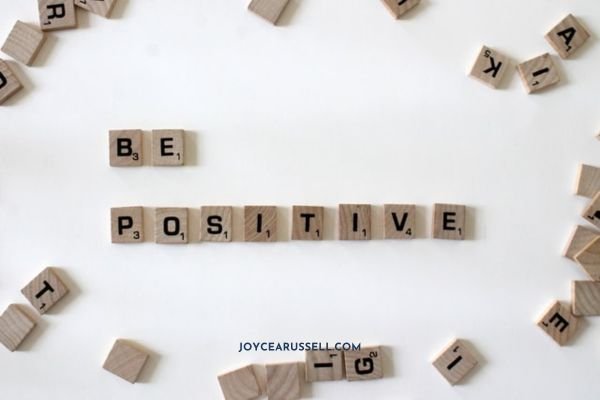There is probably no one who wouldn’t benefit from developing a self-reliant mindset. Think about it; all it means is that you rely on yourself more. It’s freeing, you are more independent, and your success or failure isn't tied to anyone else. If you’ve been alive for more than 5 minutes, you've been through some ups and downs. We all have. Life's thrown its fair share of surprises your way. But here's the thing – maybe it’s time to reassess how you approach self-reliance.
Embracing self-reliance doesn't mean you shut out the world and turn into a lone wolf who stubbornly goes it alone. It's about finding the sweet spot between independence and knowing when to lean on your support networks. Simply knowing that you can stand on your own two feet will provide you with the confidence to excel in all areas of your life.
Today, we're dipping into a topic that's near and dear to many of us: self-reliance. Yep, that's the ability to rely on yourself and handle life's curveballs with poise. Read on for the 5 distinguishing qualities you need to be more self-reliant.
Believe in yourself.
You must have the unshakable belief that you can stand on your own two feet, or you will never become more self-reliant. The power of self-belief permits you to tap into your limitless potential and navigate life's challenges with resilience and determination.
Let's talk about the ambitious journey to self-reliance! It all starts with your belief in yourself. The first step to becoming a total self-reliance champion is to FEEL more self-reliant. Embrace those experiences that shaped you and made you wiser than before.
Remember, self-reliance isn't a destination; it's a journey filled with endurance and flexibility. Mistakes, everyone makes mistakes along the way – that's how you learn and grow even stronger. Surround yourself with a supportive group of friends and family who believe in you and remind you of your inner strength.
Assume responsibility.
If you want to be more self-reliant, then you need to assume responsibility. Your actions lead to real consequences, and you need to be responsible for them. If you make a mess of things, you need to own up to those events. Your decisions, whether large or small, ripple through your life and can have both positive and not-so-positive effects on your present and future. So, embracing responsibility is about recognizing that you’re not immune to slip-ups and owning them when they occur.
When you make a mess of things, and you will at some point, everyone does. It's empowering to stand tall and say, "Hey, I made this mistake, and I'll take charge of fixing it." Laying the blame on others or expecting them to sort things out for you won't lead to growth. Instead, accepting responsibility becomes a catalyst for learning, progress, and resilience. True self-reliance shines through when you bravely face the outcomes of your choices and learn from them.
Being responsible allows you to break free from a victim mindset, where you're at the mercy of external circumstances. When you assume responsibility, you gain the power to shape your destiny and learn from the tough times.
Learn to think for yourself.
You must avoid group thinking and think for yourself. This doesn't mean that you espouse the opposing viewpoint on every issue, but make sure you understand and believe in the things you talk about. If you have a view on something, ensure your stance is not just what everyone else thinks. Challenge yourself to comprehend the topics you discuss, question assumptions, and form genuine viewpoints that resonate with you. By doing so, you'll ensure that your convictions are more than just recycled ideas repeated from others but rather a product of sincere thought and reflection.
The path to true self-reliance involves the courage to be independent in thought and action. It's easy to get swept up in the current popular opinions or societal pressure, but being self-reliant requires maintaining a clear sense of self and principles. Stand firm in your beliefs and convictions, even if they differ from the majority. Validate your ideas by exploring various perspectives and considering their implications. Trust yourself to form educated opinions, and don't shy away from expressing them, even if they challenge the status quo. Remember, self-reliance empowers you to stand confidently in your unique identity and have your authentic voice heard.
Be your authentic self.
You should understand what your core values are and what you believe in. Furthermore, it helps if you also behave in ways that reflect those values. Don't pretend or try to be someone different in the hopes of impressing others. It seldom works anyway. If you want to be more self-reliant, you need to be always comfortable in your skin. It’s a testament to your confidence and authenticity. Recognition of your true self enables you to face any storm, unaffected by outer judgments or opinions.
So, take the time to explore what truly matters to you, the principles that guide your decisions, and the causes that ignite your passion. The beliefs that form your core values direct you through life's twists and turns. Once you've discovered what your core values are, you can align your actions with your beliefs. Let them be what drives you, the constant that keeps you true to yourself. Walk the talk and lead by example, showing the world who you are. Authenticity is magnetic, whereas people are repelled by fraud. Embrace your uniqueness and let your true self shine, for that is when you'll attract people who appreciate and respect you for who you genuinely are.
Recognition of your true self enables you to face any storm, unaffected by outer judgments or opinions.
Make your decisions.
You aren't self-reliant if you run to someone else for help making every decision. True self-reliance demands that you take ownership of your decision and assume the responsibility that comes with it. Seeking guidance and advice from others can be valuable; relying on someone else to make every decision for you is like giving away your power.
Instead, self-reliance empowers you to trust your instincts, rely on your judgment, and make choices that align with your values and aspirations. It's not about having all the answers or never seeking advice; it’s about having the courage to choose independently. Embrace the decision-making journey, and don't be hard on yourself if things don't always go as planned.
Accept the discomfort of making choices, knowing it's a stepping stone to growth and self-assurance. When you make decisions, you're more invested in the outcomes, learn from both successes and mistakes and ultimately grow into a stronger individual. Remember, the decisions you make shape the path your life takes. However, the final call rests with you, and you’re the one who must live with the outcome.
Five more suggestions.
These are short and sweet and help make the above ideas easier to accomplish.
Take care of yourself.
A part of self-reliance is taking care of yourself. You must be sure both your mental and physical well-being is taken care of. A poor spell of mental or physical health will almost guarantee your reliance on others.
Commit to being a lifelong learner.
It’s important to commit to constantly learning if you want to be self-reliant. The world and your needs change; you must learn and grow, so you are ready to face these changes independently.
Know what you want.
If you want to be more self-reliant, you need to know exactly where you want to go and what you hope to achieve. What's the point of being self-reliant if you aren't following your own goals?
Identify your dependencies.
It's important to know who and what you are currently dependent on. Identify your dependencies. This way, you will know what kinds of things you need to learn to do yourself.
Determine your values.
Take some time to determine the core values that you hold and why. What are the things that you believe in, no matter what? Understanding and being true to these is an important part of self-reliance.
In conclusion, self-belief is the cornerstone of a fulfilling and empowered life. When you trust your abilities and worth, you become an unstoppable force, ready to conquer your dreams and aspirations. Remember, self-belief is not an overnight achievement. Embrace the process, be patient with yourself, and celebrate every milestone.
Additionally, personal responsibility, thinking for yourself, authenticity, and independent decision-making are the pillars that support your journey to self-reliance. Taking ownership of your actions allows you to create meaningful change in your life and the lives of others. Thinking independently permits you to form authentic viewpoints that resonate with your core values and experiences. Accepting your true self attracts genuine connections and meaningful relationships. And making your own decisions emphasizes your confidence and autonomy, guiding you toward a life filled with purpose and fulfillment.
My final thoughts are.
Self-reliance is one of the best mindsets anyone can have because it encourages you to take charge of your own destiny. The moment you recognize that no one is coming to save you, and you exhibit the confidence and ability to save yourself, you unlock a world of possibilities and personal growth.
For more information about self-reliance, please visit these posts.
Self-Sufficient People: 18 Things They Do Without Realizing It.
Be Independent And Stand On Your Own.
Thank you for reading this post, please share it.









